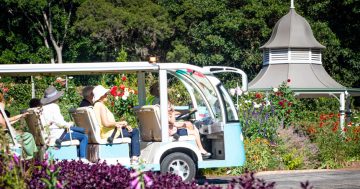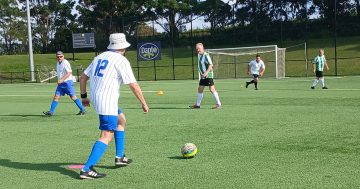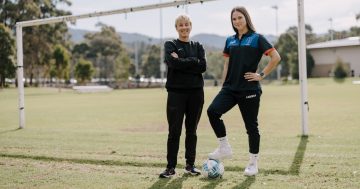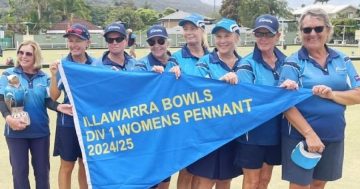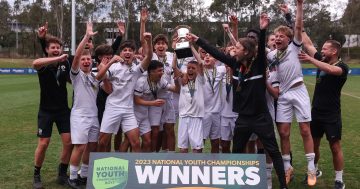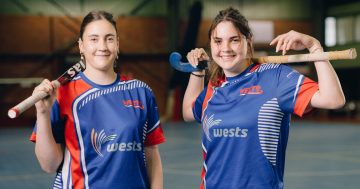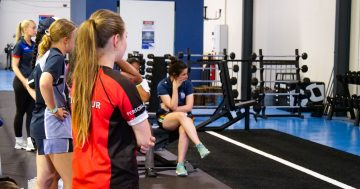
Figtree Football Club’s Luise Lago playing football with her daughter. Photos: Keeli Royle.
Still on a high from the World Cup, women’s football in the Illawarra is set for another boost thanks to new funding to make the game more accessible to women with children.
A pilot program initiated by Figtree Football Club will target mums to get moving by breaking down the barriers surrounding childcare during training and match times.
Luise Lago got hooked on football in her 20s and has overcome her own challenges of balancing sport with motherhood, but now in the over 30s team, she’s seen the same issues come up time and time again.
“Some of the women who play have partners or family who look after the children, some have them running free range on the side but there are women who don’t actually have any of those support networks,” she said.
“When I was talking to the women about playing, a lot of them were saying that they can’t come back next year because of childcare, they’re all talking about the same barriers and I thought ‘what’s the enabler?'”
The club approached Fun-damentals, which runs activities out of Lindsay Park Public School, to discuss opportunities for targeted care during specific times that are most challenging for parents to navigate.
“It’s just across the road so it’s close in terms of barriers for driving and distance, the children get looked after for two or three hours depending on whether it’s a training or match day and a lot of the kids are friends with each other,” Luise said.
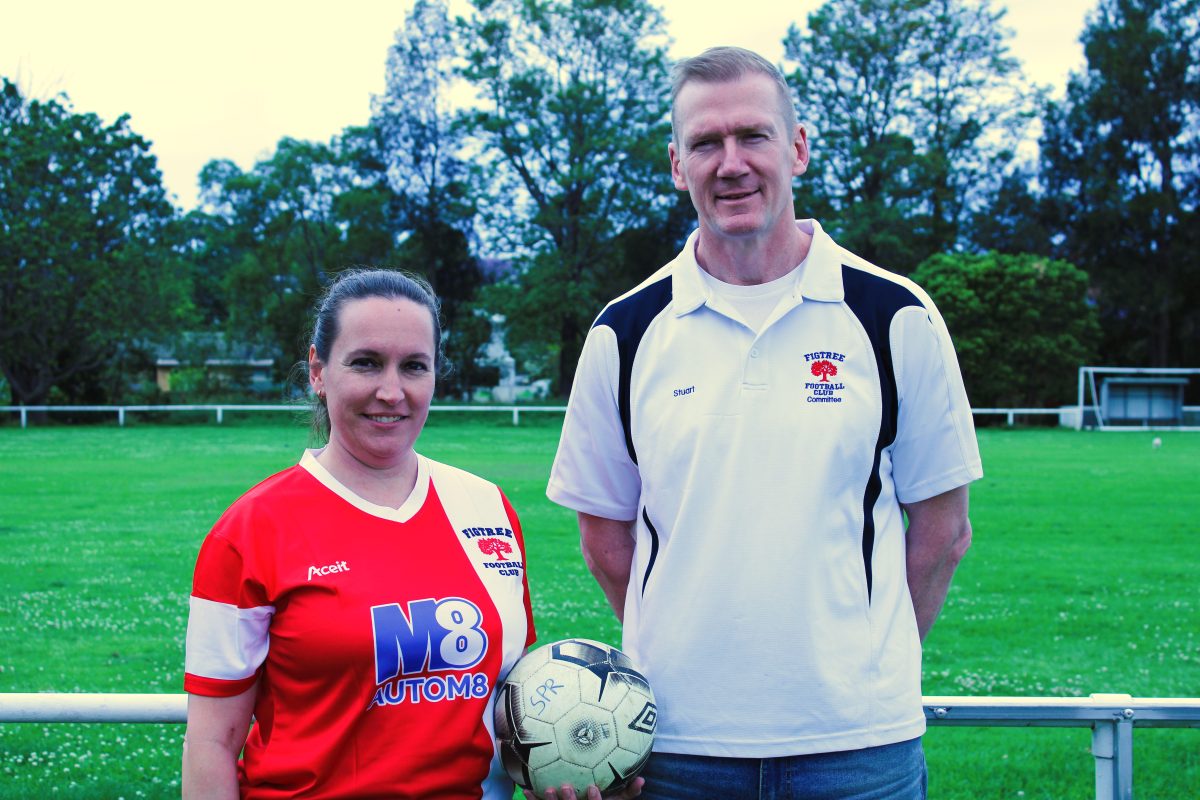
Figtree Football Club’s Luise Lago and Stuart Tyrrell are working to find better solutions so busy parents can keep playing the sport they love.
The initial rollout will have capacity for about 30 children, but Figtree FC public officer Stuart Tyrell hoped, if successful, there would be the opportunity to find solutions for kids of other ages as well.
“We’ve targeted a the primary age group, and that could roll out quite easily, but we need a younger age group model as well and that’s a different type of care,” Stuart said.
“We need to see how this program goes and come up with a variation for younger kids.”
He said it was important to the club that the sport was equitable and that everyone could reap the physical and social benefits, regardless of their family situation.
“Even in a very functional happy family, parenting can be isolating so you need team sports, you need to engage, and football’s such an accessible sport that we see it as a real chance to bring people out and create friends,” he said. “It’s good for your mental health and good for your engagement in the community.”
The social aspect was also a key draw card for Unanderra Hearts Football Club player Catherine Chard, who first had a go on the field 15 years ago after both her sons picked up the game.
She too had experienced the challenges of trying to play while also keeping an eye on the kids, but also has realised how important scheduling for time-poor mothers.
“One of the biggest things for us is having access to programs that not only fit the scheduling and cost but are working around the kids’ scheduling as well,” she said.
“It’s critical to make sure that it’s not too late, because when a parent plays late the kids need to be fed, bathed and put into bed.”
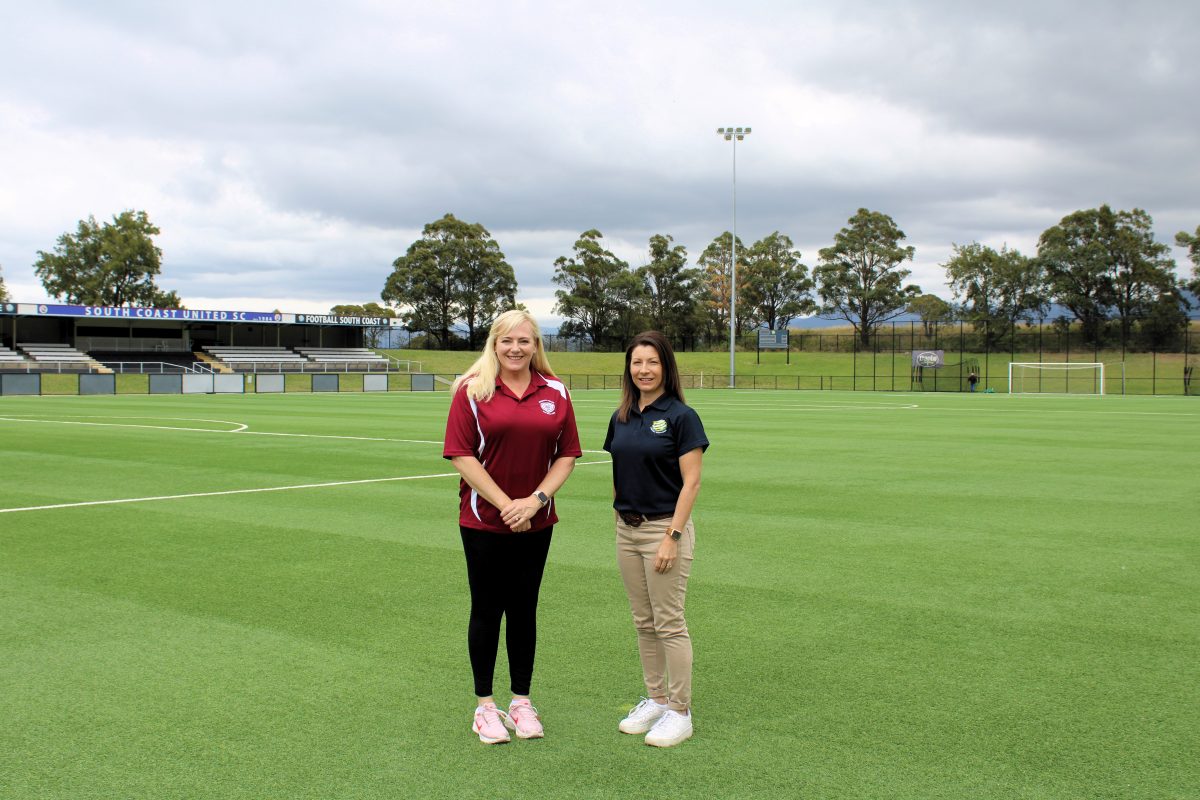
Unanderra Hearts’ Cath Chard and Football South Coast female football manager Sonya Keir have also benefitted from the funding.
Cath’s passionate about projects that give women a positive initial experience to ensure continued participation, which she’s seen through programs like Football South Coast’s (FSC) Kick On For Women, which has also received funding in the most recent round.
“Their whole judgement about coming back the following week is based on that first experience,” Cath said.
“I would say all of our mums were super keen to come back, they loved it and it was safe, it was accessible, it was scheduled properly, the kids were looked after, it was cost effective, it was brilliant to see them so keen to come back after the first program.”
Female participation has been a focus right across the region with FSC dedicated to increase participation across all ages and committed to implementing programs to meet the specific requirements of different groups.
“One of our key strategic pillars is fostering female football across the region, so that’s from end to end,” FSC female football manager Sonya Keir said.
“Five-year-olds, preschoolers, all the way to 99-year-olds if they want to play.”
The association will roll out daytime sessions for women and mini-roos side-by-side to help encourage participation for both mothers and daughters as well as create an environment that encourages women to be confident to try new things.
“Often we question ourselves in terms of our capability so we want to give women the opportunity to overcome that in a safe, comfortable environment,” Sonya said.
Although there vision was already in the works, the government funding helps make the programs even more accessible and affordable.
“While female football is already part of our business strategy, the legacy fund is allowing us to do things that potentially we would have had to pass the cost onto the participants,” Sonya said.
“We are demonstrating to them good role models that you can be more than a mum, because to them we have always just been mum,” Cath added.
“When they see us out there playing and enjoying ourselves as well they get a love for the sport, so it can only grow in so many positive ways.”
Major infrastructure projects are also underway to give equal access to facilities for women and create a comfortable environment for them to participate.
More than $340,000 has been granted to clubs in the region to upgrade changerooms, clubhouses and fields.
For the full list of grant recipients from this round of the NSW Football Legacy Fund visit the NSW Office of Sport website.








